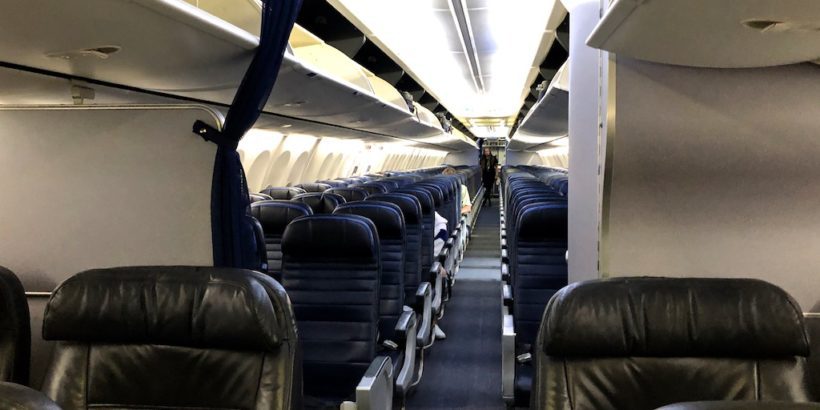I recently had the privilege to talk with Charles Leocha of Travelers United and discuss the state of consumer rights in travel. If you haven’t heard of Charles Leocha or Travelers United, they are at the forefront of the movement for effecting change for consumers in many different areas of travel and they’re largely responsible for many of the protections we travelers take for granted today. So check out the interview below and be sure to check out their membership program as well and learn how you can help support them.

Q: What is Travelers United and how did it come about?
I started the organization back in 2009. We are the largest membership advocacy organization for travel in DC. Today, we have lots of credibility and I have testified before Congress five times and have created a functioning travel advocacy coalition in DC.
Q: You’ve played a major role in several big changes over the past decade but what accomplishment in the realm of consumer rights has brought you the most personal satisfaction? Has that accomplishment also been the most challenging?
Probably the creation of the Advisory Committee for Aviation Consumer Protection that was done through Congress. Then the changes to DOT rules to allow the 24-hour rule (that allows consumers to cancel any flight within 24 hours of purchasing a ticket); getting the lost/damaged/delayed checked-baggage compensation changed to $3,500; and the full-fare advertising rule.
Q: What big change or changes are you hoping are put into effect relating to air travel in the near future?
I am trying to get DOT to put the Families Sitting Together section of the FAA Bill into effect.
Q: What is one consumer right related to air travel that people must know about?
Always file complaints with DOT and know about the 24-hour rule.
Q: There are no federal laws requiring airlines to provide passengers with money or other compensation when their flights are delayed but EU 261 mandates compensation after 3 hour delays in many cases. Do you think we’ll eventually see something comparable to EU 261 in the US and if so, how do you think it would look?
Yes, hopefully. We are working on that issue regularly.
Q: People (including myself) see regulations like the 24-hour cancellation rule for airfare refunds and sort of just take them for granted. But you’ve put countless hours of hard work into bringing many of these changes about and people like you are kind of an un-sung heroes. Do you think that is just a reflection of how oblivious consumers are to these battles that are going on for their rights?
Few people know difficult it is to get anything changed in DC. This is why big businesses spend millions of dollars on lobbying. Consumers take everything for granted. But, we are working hard every day to make changes.
Q: In all of your years working for consumer rights, what is one of the main lessons you’ve learned when it comes to dealing with politics on Capitol Hill, particularly in the travel sector?
There are always may ways that change can be made. We work through DOT to change rules and regulations. We work with Congress to change laws. We work with the FAA to get more personal space for passengers. We worked with the FTC to get rid of resort fees and eventually began working with the National Association of Attorneys General (NAAG). Plus, we have spoken with online travel agencies like Booking and Expedia.
Q: Okay, so now I want to switch gears a little bit and go with a few questions related to different areas. Air airline alliances a good thing or bad thing for consumers?
They are only good for airlines. Consumers are getting higher prices, monopolistic behavior, less competition, and more restrictions on being too easily transferred between airlines.
Q: Many love mistake fares (jumping on airfare that’s erroneously offered at a discounted rate). What is your opinion on how airlines should handle mistake fares?
They should honor any fare they put on their website for sale.
Q: Resort fees are a huge pain for many travelers, especially since they are often hit with them by surprise. What type of justification do hotels offer for these fees and do you see resort fees going away at some point?
I hope so. We have worked with the FTC and gotten them to do a study showing that resort fees harm consumers and now NAAG has already filed subpoenas to contest these mandatory fees that are not included in the room rates.
Q: TSA gets a lot of flak and I think it has to do with the day-to-day encounters with security agents (which aren’t always the most pleasant). But it seems the most important work TSA does goes on behind the scenes. Do you think TSA doesn’t get the proper respect it deserves from travelers?
Absolutely. TSA’s work through the antiterrorism watchlist is wonderful. So far, no one has gotten through to the checkpoints for about a decade.
Q: If people want to contribute to your work and many of these meaningful changes within the travel industry you are working towards, what is the first step that they should take?
Passengers can sign up for the TravelersUnited.org. And then they can join our Plus program that costs $29 per year for the first year and then $39/year afterwards. It provides almost $400 in benefits (WiFi security anywhere in the world, a secure lock-box for travel data, and $25/month in dining coupons good at thousands of restaurants across the country).
Daniel Gillaspia is the Founder of UponArriving.com and the credit card app, WalletFlo. He is a former attorney turned travel expert covering destinations along with TSA, airline, and hotel policies. Since 2014, his content has been featured in publications such as National Geographic, Smithsonian Magazine, and CNBC. Read my bio.

